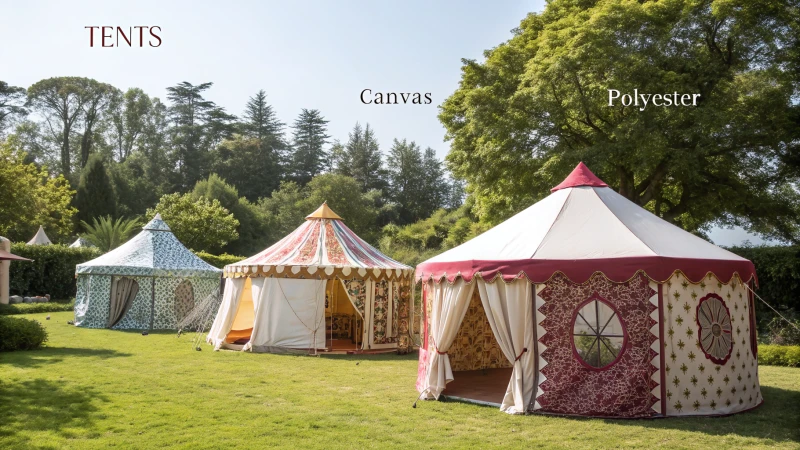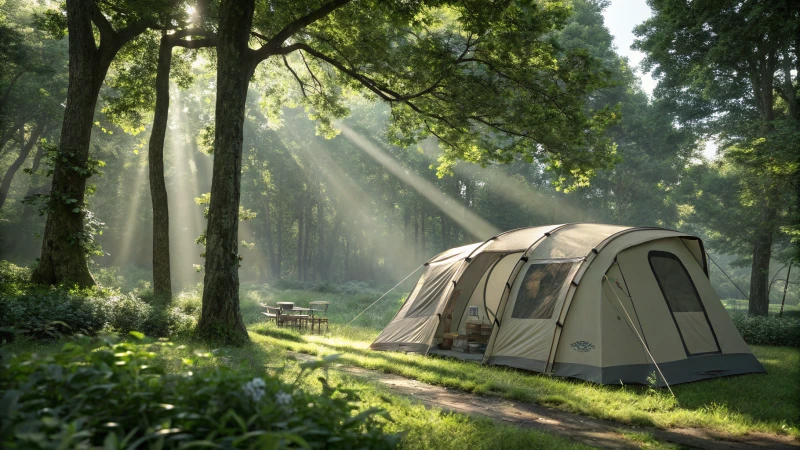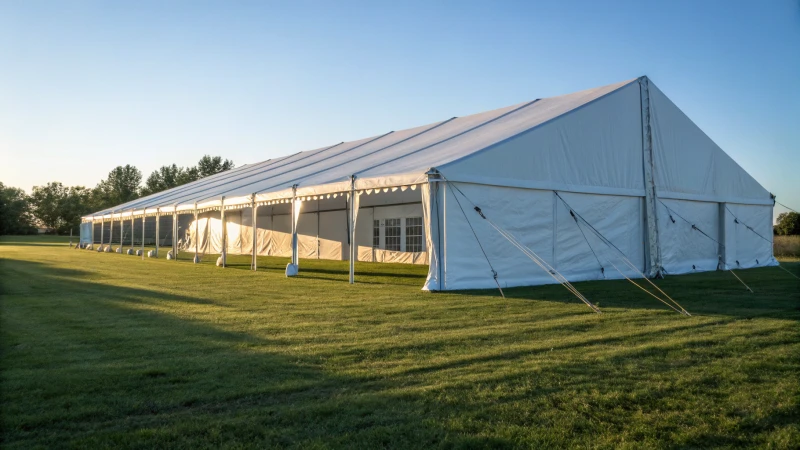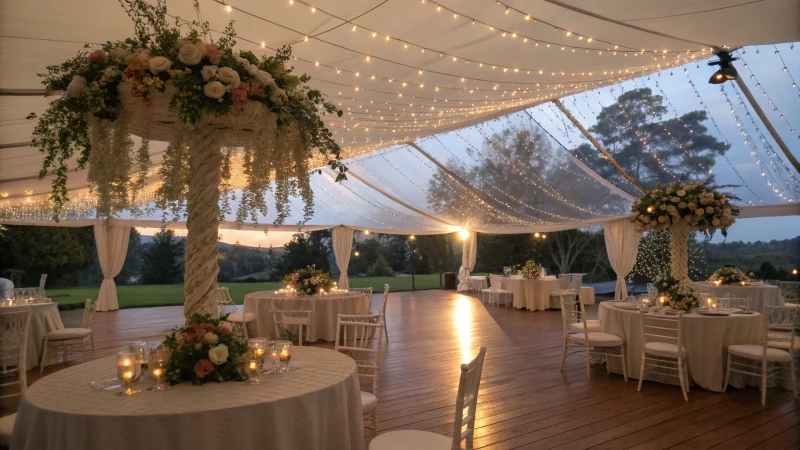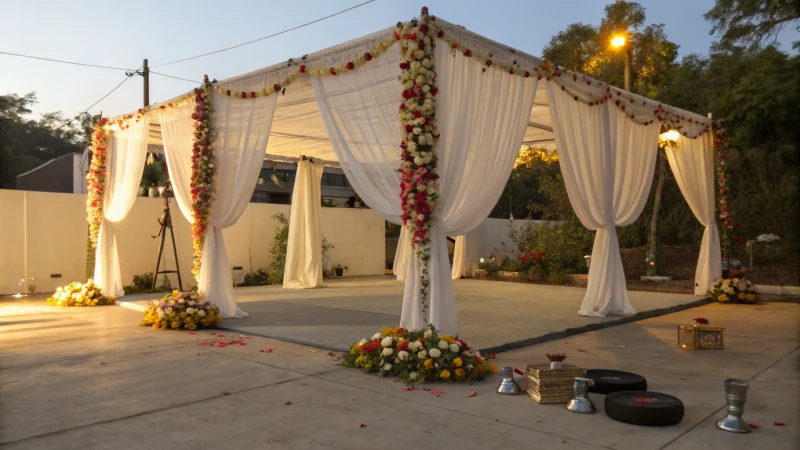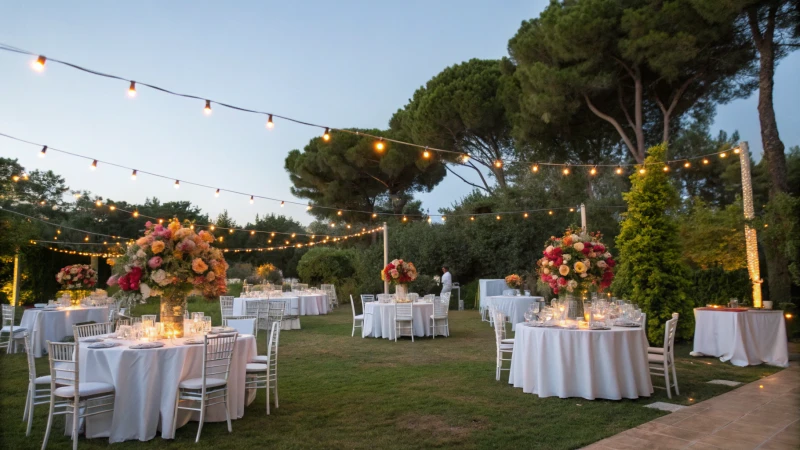
Imagine the thrill of hosting an outdoor event that leaves everyone talking! With the right approach, you can make it unforgettable.
For a successful outdoor event, start by defining clear objectives, crafting a detailed budget, and choosing the perfect venue. Anticipate weather changes and streamline logistics to ensure an exceptional guest experience.
These steps lay the groundwork, but there’s so much more to discover. Let me take you through each tip to help you craft an event that not only meets your expectations but also surprises and delights your guests. From weather-proofing your plans to organizing seamless logistics, let’s dive deeper into making your event truly memorable.
Setting clear objectives ensures event success.True
Clear objectives guide planning and execution, enhancing event focus.
Weather contingencies are unnecessary for outdoor events.False
Weather can be unpredictable; contingencies ensure event continuity.
How Can You Define Your Event Objectives Clearly?
Have you ever felt overwhelmed trying to pin down what you want from an event? You’re not alone! Let’s dive into how setting clear objectives can transform your planning process.
Defining your event objectives clearly starts with the SMART criteria: Specific, Measurable, Achievable, Relevant, and Time-bound. This structured approach ensures your goals are clear and actionable, paving the way for successful planning and execution.

I remember the first major event I planned—just thinking about it gives me flashbacks of those overwhelming early days. Back then, my objectives were as vague as "make it a success," which, unsurprisingly, didn’t help much. It wasn’t until a wise friend introduced me to the SMART framework that everything changed.
Utilize the SMART Framework
The SMART criteria became my guiding light in event planning1. Breaking down objectives into Specific, Measurable, Achievable, Relevant, and Time-bound components made them less daunting and more actionable. Instead of a nebulous "increase attendance," I found myself focusing on specifics like "increase attendance by 20% compared to last year." This clarity was a game-changer.
Align Objectives with Event Goals
Aligning objectives with the overall event goals2 ensures every effort contributes to the bigger picture. When I aimed to boost brand awareness at a trade show, my objective morphed into "engage 100 influencers during the event." This alignment created a cohesive strategy that everyone could rally around.
Involve Key Stakeholders
I learned early on that involving key stakeholders in the objective-setting process3 is crucial. Diverse perspectives enrich the planning process and ensure objectives align with organizational priorities. We used collaborative tools like shared documents to gather input and keep everyone on the same page.
Prioritize Objectives by Importance
Not all objectives are created equal. Prioritizing them based on importance and feasibility helped us focus our resources effectively. Creating a table to visualize this was particularly useful:
| Objective | Importance | Feasibility |
|---|---|---|
| Increase Attendance | High | Medium |
| Enhance Branding | Medium | High |
This clarity in prioritization was invaluable in resource allocation.
Regularly Review and Adjust Objectives
Objectives should be living things—regular reviews keep them relevant. During our planning meetings4, feedback loops allowed us to tweak objectives based on new insights or challenges.
Leverage Feedback from Past Events
Finally, feedback from previous events is a goldmine. Reflecting on what worked and what didn’t helped refine our current objective-setting5 process, enhancing our chances of success. Looking back, I can’t imagine navigating the complex world of event planning without these strategies.
SMART criteria ensures objectives are always relevant.False
SMART criteria guide relevance but don't guarantee it without context.
Involving stakeholders aids in aligning objectives with goals.True
Stakeholder involvement ensures diverse perspectives and aligns priorities.
What Should Be Included in Your Outdoor Event Budget?
Planning an outdoor event is like embarking on an exhilarating adventure, where every detail matters.
An effective outdoor event budget should include venue rental, permits, catering, entertainment, staffing, marketing expenses, and a contingency fund for unexpected costs. Proper budgeting ensures all aspects are covered, from logistics to marketing, allowing for a smooth and memorable event execution.

Venue and Permits
I remember the first time I planned an outdoor event, I underestimated the cost of venue rental6 and permits. It was a wake-up call when those expenses came in higher than expected. Venue rental can vary wildly, and permits are a must to avoid any legal hiccups. Be sure to include:
- Rental fees
- Setup and teardown costs
- Permits for public space use
- Insurance for liability coverage
Getting these ducks in a row early helps keep the stress at bay as the event approaches. Understanding permit requirements7 can prevent last-minute issues.
Catering and Entertainment
Food and entertainment? That’s where the magic happens! I’ve learned that spending wisely here can transform an event from good to unforgettable. Depending on your style—be it buffet or plated service—you’ll need to budget for:
| Category | Estimated Cost |
|---|---|
| Catering | $25-$100 per head |
| Entertainment | $500-$5,000 |
Don’t forget the little things like tableware rentals and entertainment equipment. Exploring different catering options can help find the perfect fit. Explore catering options8 to find the best fit.
Staffing and Logistics
I once thought I could manage with minimal staff—it was chaos! Proper staffing ensures everything runs smoothly. Consider:
- Hiring staff (e.g., security, waitstaff)
- Transport logistics for equipment and guests
- Facilities setup like restrooms and emergency services
Avoid logistical nightmares by planning thoroughly. Learn more about staffing needs9.
Marketing and Miscellaneous Costs
For public events, marketing is crucial. My first event taught me not to skimp here; it can make or break your turnout.
- Digital advertising (social media, email campaigns)
- Printed materials (flyers, banners)
- Event signage
Miscellaneous costs always pop up—unexpected repairs or additional supplies—so keep a buffer ready. For precise budgeting, review marketing strategies10 suited to outdoor events.
Contingency Fund
Finally, a contingency fund is my secret weapon. I usually set aside 10-20% of the total budget for those ‘just in case’ moments like weather changes or equipment failures. This fund has saved me more times than I can count, providing peace of mind that no matter what happens, I’m covered. Find out how to prepare contingencies11 effectively for peace of mind.
Venue rental includes setup and teardown costs.True
Setup and teardown costs are part of venue rental expenses.
Contingency funds cover only marketing costs.False
Contingency funds cover unforeseen expenses, not just marketing.
How Can You Select the Perfect Outdoor Venue?
Imagine stepping into the perfect outdoor venue where everything aligns effortlessly with your vision. It’s a magical moment that sets the stage for unforgettable memories.
To choose the perfect outdoor venue, focus on accessibility, weather plans, guest capacity, and amenities. Evaluate how each venue aligns with your event’s goals to ensure a seamless experience for everyone.
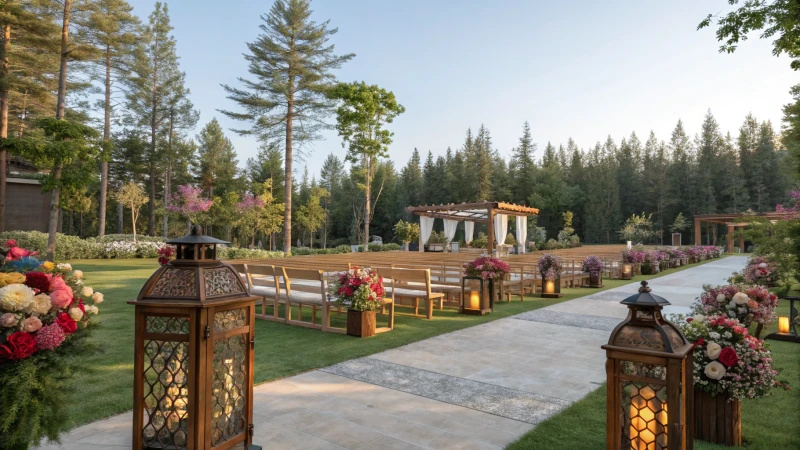
Understanding Your Event Needs
I remember planning my own outdoor event and realizing how crucial it was to first define what I truly wanted from it. Was it an intimate wedding surrounded by nature or a dynamic corporate gathering with all the tech bells and whistles? Knowing the purpose set the tone and helped narrow down my choices significantly.
Key Factors to Consider
Location Accessibility
In the midst of my planning, I once had an epiphany while stuck in traffic: accessibility is key! Ensuring the venue is easy to reach for all attendees can save them a lot of hassle. Think about nearby roads, public transport, and parking options—little details that make a big difference. Providing clear transport links12 can enhance the guest experience significantly.
Capacity and Layout
Oh, the times I’ve underestimated guest numbers! It’s vital to choose a venue that comfortably fits everyone with room for different zones like dining and dancing. Use tables to compare venue capacities against guest numbers:
| Venue Name | Maximum Capacity | Recommended Event Type |
|---|---|---|
| Green Park | 200 | Weddings, Parties |
| City Center | 500 | Corporate Events |
| Lakeside Hall | 300 | Festivals |
Weather and Contingency Planning
One summer, an unexpected downpour nearly washed out an event I was hosting. That’s when I learned the value of having backup plans like tents or indoor spaces. Trust me, being prepared for unpredictable weather is a lifesaver. Consider weather-proof solutions13 to safeguard your event against sudden changes.
Amenities and Facilities
Once, at a friend’s conference, the lack of audio-visual equipment almost derailed the whole event. Double-checking amenities like restrooms, kitchens, and tech gear can save you from last-minute chaos. Ensure these facilities are available or if third-party services are allowed.
Environmental Considerations
I’ve started paying attention to eco-friendly practices in venues, like efficient waste management and recycling options. It not only makes me feel good about hosting but also aligns with broader sustainability goals. Explore venues that utilize renewable energy or adhere to eco-friendly practices.
Budget Constraints
Sticking to a budget is something I learned from experience. It’s tempting to splurge, but tracking costs helps keep everything in check:
| Expense Category | Estimated Cost | Notes |
|---|---|---|
| Venue Rental | $3,000 | Negotiable with package |
| Catering | $5,000 | Includes setup |
| AV Equipment | $1,200 | Discounts available |
By considering these factors, I’ve managed to select venues that not only cater to logistical needs but also create memorable experiences for everyone involved. I hope these insights help you find that perfect spot too!
A wedding venue must have AV equipment.False
Weddings typically require picturesque settings, not necessarily AV equipment.
Corporate events need technological infrastructure.True
Corporate events often require presentations, necessitating tech facilities.
Why Is Weather Contingency Planning Crucial for Outdoor Events?
I remember that time I was organizing an outdoor event and got caught off guard by a sudden downpour. Since then, weather contingency planning has been my go-to strategy for ensuring nothing ruins the day.
Weather contingency planning for outdoor events is essential because it helps prepare organizers for unexpected weather conditions, ensuring the safety of attendees, adherence to legal requirements, and the seamless continuation of the event. Key strategies include securing backup venues, setting up protective structures, and employing real-time monitoring systems.

Understanding the Basics of Weather Contingency Planning
Let me paint a picture: You’re excitedly planning an outdoor event, envisioning sunny skies and happy faces. But then it hits you—what if it rains? That’s when weather contingency planning becomes your best friend. It involves crafting strategies to handle any weather surprise Mother Nature throws your way. This means having backup venues, protective structures like tents, and real-time weather monitoring systems. I’ve learned from experience to lean on weather prediction tools14 for detailed forecasts.
Real-Life Examples of Weather Disruptions
Take the 2019 music festival in California, for instance. The organizers didn’t have a solid contingency plan, and when thunderstorms rolled in, chaos ensued. That was a lesson learned the hard way. On the flip side, the 2020 outdoor art show in New York had an indoor venue ready to go when heavy rains hit. Guests barely noticed the change, and the event continued smoothly.
Tools and Technologies for Effective Planning
In today’s digital age, technology is a lifesaver. I rely on weather apps and radar systems to get real-time updates. Event management software with features like guest alerts and logistics adjustments keeps everything running like clockwork. I recommend checking out event planning apps15 that integrate weather updates—they’ve been game-changers for me.
Key Elements of a Weather Contingency Plan
- Backup Venues: Always have an indoor location ready.
- Protective Structures: Think tents with sturdy siding for extra cover.
- Communication Strategy: Keep your guests informed via emails or apps.
Having a detailed plan can be the difference between a seamless event and a logistical nightmare. I always partner with local service providers for quick setup of protective structures and ensure tents can withstand wind and snow loads.
| Consideration | Action |
|---|---|
| Weather Forecasting | Use apps for real-time updates |
| Venue Backup | Secure an alternate location |
| Protective Measures | Tents with siding for extra cover |
Legal and Safety Considerations
Legal compliance isn’t just about ticking boxes; it’s crucial for safety and peace of mind. I make sure to consult with local authorities about noise, safety codes, and permits—especially in areas prone to severe weather like hurricanes. It’s not glamorous, but it’s necessary. For example, safety regulations16 can vary widely depending on local conditions.
Incorporating these strategies into your event planning helps shield against unexpected weather challenges, ensuring both safety and success for your outdoor gatherings.
Backup venues are crucial for outdoor events.True
Backup venues provide an alternative location, ensuring event continuity.
Ignoring weather forecasts has no impact on event success.False
Weather forecasts help anticipate conditions, preventing disruptions and ensuring safety.
Conclusion
Discover essential tips for planning a successful outdoor event, including setting clear objectives, budgeting effectively, choosing the right venue, and preparing for weather contingencies.
-
Explore how SMART criteria can guide event objective-setting for clear and actionable goals. ↩
-
Learn strategies for aligning event objectives with overarching business goals. ↩
-
Discover the benefits of involving stakeholders in the objective-setting process for events. ↩
-
Find methods for effectively reviewing and adjusting event objectives during planning. ↩
-
Understand how to leverage past event feedback to refine future event objectives. ↩
-
Discover average venue rental costs to help plan your budget effectively. ↩
-
Learn about necessary permits to avoid legal issues during your event. ↩
-
Explore diverse catering options that suit different budgets and tastes. ↩
-
Gain insights into efficient staffing strategies for your outdoor event. ↩
-
Uncover effective marketing strategies to boost your event’s visibility. ↩
-
Learn how to create a solid contingency plan to manage unexpected issues. ↩
-
Find venues with excellent transport links to improve guest access. ↩
-
Explore options to protect your event from adverse weather conditions. ↩
-
Discovering effective weather prediction tools can greatly enhance your event planning by providing accurate forecasts. ↩
-
Event planning apps with integrated weather features help you make real-time adjustments to ensure event success. ↩
-
Understanding local safety regulations ensures compliance and enhances event safety during severe weather conditions. ↩


